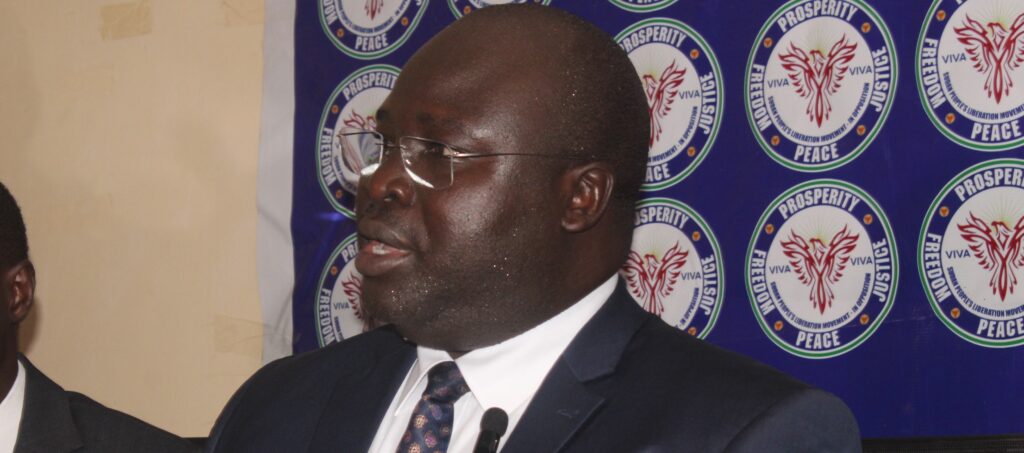The opposition group SPLM-IO has called on President Salva Kiir to reject the amendments to the law governing the National Security Service (NSS).
South Sudan’s National Legislative Assembly on 3 July passed amendments to the 2014 National Security Service Act by a vote of 274-114 that will allow the agency to continue arresting or detaining people without a warrant.
Several human rights organizations have documented how the agency has used the 2014 law’s broad powers to establish a regime of censorship, surveillance, and other abusive interference with fundamental rights and freedoms.
During a press briefing on Sunday, July 7, the opposition SPLM-IO insisted that the President still has time to return the controversial National Security Act 2014 (Amendment) Bill 2024 to the parliament.
Nathaniel Oyet Pierino, Deputy Chairperson of SPLM-IO and First Speaker of Parliament urged President Kiir to uphold the two principals’ decision, the council of ministers’ resolutions, and the legal advice of the minister of justice on the removal of sections 54 and 55 of the Bill.
Oyet also called upon the parliament to vote in accordance with the 2018 revitalized peace deal, which allows parliament to make decisions based on consensus.
“It is not a matter of parties. Not IO, not SSOA, not ITGoNU or whatever. It is a matter of this country. And it is the head of the government and the state who can break this impasse by not signing the Bill and returning it to the parliament so that the parliament pursues due process,” he said.
“They should not run away from secret ballots. It is mentioned in the conduct of business regulations. And the threshold also in the agreement is 367. So, votes on matters related to the agreement must meet the threshold of 367,” he added.
According to Oyet, the rejection of the National Security Bill is a demand by South Sudanese that should be respected.
“I know the President is listening. He is following what the public says in the [mainstream] media. He is also following social media. We all follow the media and the comments that are coming. There is an uproar from the public,” Oyet concluded.
The National Security Bill was passed by parliament on Wednesday and awaits the President’s assent.
According to the law, the President has 14 days to assent or refer the Bill back to parliament for reconsideration, noting his reservations.




